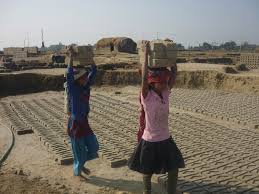Charles Mabhena
Tichatonga Mbeuwe (66) of Mhembere Village in Shamva District wakes up at 4 am everyday from Monday to Thursday, with his hat and jacket in hand, sets out for Chidembo Village 20 or so kilometres away, where he is engaged in work for the whole day to get food in return.
Mbeuwe like any other folks in the area are moulding bricks to be used for community facilities such as schools and clinics, under the food for work programme. However, some like him, have taken a swipe on the programme, equating it to being punished, as they claim that they are being made to work under very harsh conditions, where they toil on empty stomachs.
He says while the programme looks and sounds a good idea, its implementation is more like being punished or as if one is under a community service penalty from a court of law. “We are made to work from 6 in the morning to about 4 pm; they do not supply food to be eaten while working. If you do not carry your own lunch, then you will work on empty stomach, imagine in this tormenting heat. The idea was good, but the implementation is bad,” he says.
He says the working conditions are inhumane, and adds that for many citizens in the area they are not sure if this food was meant for that purpose from those who donated it, or is it ZANU PF’s way of making sure people do not get food while seated, despite having had acquired it to be given away for free.
“We are made to mould bricks for the whole day for four days a week, and get 50kg for the month’s work this is unfair considering the hard labour involved. At some instances, people are made to repair bush roads, we failed to see the logic in that,” he says.
Mbeuwe is one such Zimbabwean in the country’s drought stricken districts who have been receiving food from the government’s ‘food for work’ programme, this include people working in their areas, be it road repairing, dam buildings and brick moulding, they get 50kg of maize every month in return.
His sentiments were also expressed by Benhilda Matare of Mutoko, who alleges the food for work has been hijacked by unscrupulous members of the ruling party, she says even the selection process of who should receive food under that programme is done on partisan lines. Matare also alleges that it has been used to steal money from the villagers who are made to pay for the food from donors.
“I remember at one time we were being told to contribute $2 to $3 per family before being given the food. The money was purported to be used to pay transport costs from Harare to Mutoko. We were surprised as to who had paid for the flight from outside the country where the food originally came from, only to learn that everything was paid for by the donors.
“So the money we were asked to pay was being stolen by those who distributed the food,” she tells Zim News.
Under these programmes District Drought Relief Committees and communities identify infrastructure projects to be embarked on with guidance from District Development Fund engineers.
Although Zim News failed to get a comment from the people on the ground who distribute the food, Public Service, Labour and Social Welfare Minister Prisca Mupfumira is on record saying while their primary focus was on free food handout to vulnerable members, they have noticed that there were able-bodied who can assist in community development, hence the food for work projects.
The ZANU PF government has been making headlines for politicising food relief from donors, the charges the authorities have been vehemently denying.













